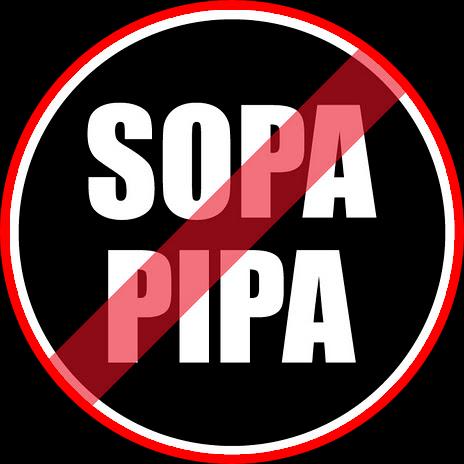The world wide web of protest
The popular online encyclopaedia, Wikipedia.org, has gone dark today. If you log on to the website, you will be greeted with the message “Imagine a World Without Free Knowledge.” The site also adds that “the U.S. Congress is considering legislation that could fatally damage the free and open Internet.”
This blackout is for English- language articles only which are almost 3,847,673 in number. The blackout will stay for 24 hours till 11:59pm, Jan 18, 2012.

Wikipedia has gone dark in protest against two bills which seem likely to be passed in the US Senate—the Stop Online Piracy Act, known as SOPA, and PROTECT IP Act (Preventing Real Online Threats to Economic Creativity and Theft of Intellectual Property Act of 2011 or PIPA).
Wikipedia co-founder Jimmy Wales had this advice for students on Twitter: “Student warning! Do your homework early. Wikipedia protesting bad law on Wednesday! #sopa.”
While the drafters of the bills intend to protect copyrighted material which is available illegally online through piracy-based websites, the opponents of the bills believe that it will affect freedom of speech online, because then it would be more vulnerable to censorship. Social media; which serves as a platform for freedom of speech and expression, could fall under the supervision of these bills—even though the websites themselves may not infringe any copyright issue. Websites like Facebook and Twitter carry user-driven content which could hold these websites liable for copyright infringement. Therefore, it would become necessary for these websites to censor online content—something they say is impossible, due to the amount of content that is published on their sites every minute.
Wikipedia has been joined by various other popular sites in this protest already including Google, Reddit.com, BoingBoing.net and another 7000 estimated websites. Among these, only Wikipedia and Reddit.com have officially declared to go dark for the whole day. The internet giant Google has devised its own way of going about the protest. Google has said that users won’t see a blank page at Google.com, but will instead have the opportunity of using the Google homepage to register their opposition against SOPA by telling the U.S Congress about it. However, Facebook, Twitter and a few other big companies have not supported the blackout in a way that was proposed by opponents. Twitter chief executive Dick Costolo wrote on Twitter, "Closing a global business in reaction to single-issue national politics is foolish."
A Google spokesperson told Mashable in an e-mail statement, “Like many businesses, entrepreneurs and web users, we oppose these bills because there are smart, targeted ways to shut down foreign rogue websites without asking American companies to censor the Internet. So tomorrow we will be joining many other tech companies to highlight this issue on our U.S. home page.”
The companies who joined the protest in some form or the other, together with many big tech companies like Mozilla, Zynga, AOL and eBay, wrote to the U.S. Congress in November to complain about the legislation.
In case you are confused about SOPA and PIPA, here is what they are all about:
The Stop Online Piracy Act (SOPA) is a bill that was introduced in the US House of Representatives on October 26, 2011. So far this bill has not been passed but if it does get passed, it will allow American law enforcement agencies—and those who own the work that is being pirated—to fight against those who traffic the copyrighted content, and those illegally owning it. This would allow the US Department of Justice and copyright holders to seek court orders against pirate websites accused of copyright infringement. The court can then order Internet service providers and all linking search engines bars to block access to these sites.
On May 12, 2011, prior to SOPA being put on the table, another sister bill was introduced in the U.S. Senate, one that would give more power to American law enforcement agencies. This bill is PIPA. The act gives the US government and copyright owners the authority to block access to websites outside of the US. Once a copyright owner gets to know about a case of copyright infringement, he or she can, together with US law agencies, apply to the court and register the domain name of the website(s). Then the court can order internet companies linking to the summoned website to restrict their financial and advertising services.
Although the bill does bring up certain valid points, opponents largely believe that it has the potential to snowball to a point that would lead to major online censorship. If passed, the bill would affect the average person through their social media platforms, for instance. Cases of copyright issues on let’s say Facebook, could lead to blocking the entire website.
It is pertinent to note that Facebook and other social networking sites have user-driven content. It would be impossible to keep up with and screen each item that a user puts up on the site. The bill would imply that despite websites like Facebook not being pirate websites, they could be taken down, simply based on user content. Even if you post copyrighted images or words—such as song lyrics—you could be responsible for social networking sites having to deal with major legal problems.
In addition to the online protests today, some opponents are physically protesting outside their congressional representatives’ offices. Reddit co-founder Alexis Ohanian said in a press conference that it will “probably be the geekiest, most rational protest ever.”






